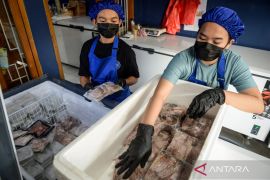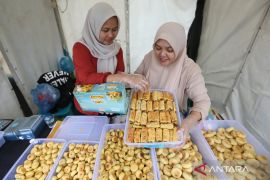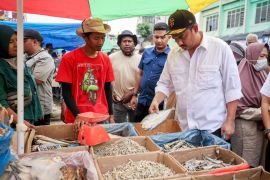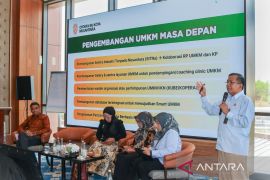He made the statement when speaking at an online discussion on sharing lessons learned among countries that Indonesia's Coordinating Ministry for Economic Affairs held in collaboration with the NSLIC/NSELRED Project on October 29 (29/10).
The issues discussed included learning about good practices, challenges, and opportunities in creating better competitiveness and ecosystem of MSMEs.
Ambassador MacKay highlighted the importance of MSMEs for job creation in Indonesia, saying that 64 million micro, small and medium enterprises provide jobs to 97 percent of the national workforce.
"We are all aware of the importance of the micro and small enterprises in Indonesia," the ambassador was quoted as saying in a statement that ANTARA received here Sunday.
Through the NSLIC project, Canada has been supporting micro and small businesses across Indonesia with total beneficiaries of approximately 5,278 business units, ranging from farmer groups, cooperatives, to micro and small enterprises that provide jobs to 71,376 individuals.
MSMEs play an important role to the Indonesian economy. As many as 97 percent of the workforce in Indonesia work in the MSME sector and this sector contributes 61 percent to GDP.
However, one of the most affected sectors by the COVID-19 pandemic is MSME.
Related news: Minister Masduki encourages MSMEs to embrace digital transformation
Based on the study report of the University of Indonesia's Faculty of Economics and Business Institute for Economic and Social Research (LPEM FEB UI) and UNDP in September 2020, the highest increase in unemployment occurred in the MSME sector. Nine out of 10 MSMEs in Indonesia experienced a decline in demand for their products during the pandemic.
In addition, Secretary of the Coordinating Ministry for Economic Affairs Susiwijono Moegiarso said the Job Creation Law mandated the convenience, protection, and empowerment of MSMEs through an integrated management of MSMEs, MSME participation in public infrastructure, ease of business licensing, legal assistance and assistance services, convenience facilitation of financing and fiscal incentives, as well as training and assistance in the use of bookkeeping systems/applications.
All these facilities could hopefully encourage the growth of MSMEs in Indonesia which would affect job creation, he said.
“In this webinar, participants are expected to be able to broaden their knowledge by getting lessons from international best practices on increasing economic competitiveness taken from policies that have been implemented so far by several member countries of the Organization for Economic Cooperation and Development (OECD),” Susiwijono said.
A report of Indonesia’s Banking Development Institute (LPPI) and Bank Indonesia revealed that the barriers to MSMEs are in the form of internal barriers (financial access, human resources, legality, and accountability) and external barriers (unsupportive business climate, lack of infrastructure support and access to raw materials as well as access to international markets).
Deputy for Population and Manpower of Bappenas Pungky Sumadi, Head of the Regional Development Planning Agency of Central Java Province Prasetyo Aribowo, Head of the Regional Development Planning Agency of East Belitung District Bayu Priyambodo, Policy Analyst of OECD Marco Marchese, Expert on SMEs Policy and Best Practices Greg Elms, and Founder of Archipelago (the Canada-based digital platform for Indonesia SMEs products) Liza Wajong joined the webinar as speakers in the presentation and discussion sessions.
Lessons learned from developed countries highlighted the importance of utilizing digital technology, coordination between stakeholders, and coordination between levels of government, both central and regional.
Related news: Facilitating market access for Bali MSMEs' innovative products
Reporter: Azis Kurmala
Editor: Rahmad Nasution
Copyright © ANTARA 2021












